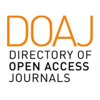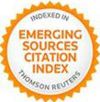Abstract
Keywords
Full Text:
PDFDOI: http://dx.doi.org/10.2423/i22394303v9n1p79
References
Andrian, G. (2018). Any future to our past? The challenges of heritage management. Cartaditalia, Numero speciale 2018 Anno europeo del patrimonio culturale, 18(ns) vol.2, 375-396. Retrieved from https://europa.eu/cultural-heritage/toolkits/cartaditalia-european-year-cultural-heritage-edition_ en
Arnstein, S. R. (1969). A ladder of citizen participation. Journal of the American Institute of planners, 35(4), 216-224.
Citizens Involved: Participatory Governance of Built Heritage, Report of the International Conference (2018). Retrived from http://jpi-ch.eu/wp-content/uploads/Report-of-the-International-Conference-on-Builti-Cultural-Heritage.pdf
CoE (2005). Framework Convention on the Value of Cultural Heritage for Society. Retrieved from https://rm.coe.int/1680083746
Decision (EU) 2017/864 of the European Parliament and of the Council of 17 May 2017 on a European Year of Cultural Heritage (2018). Retrieved from https://eur-lex.europa.eu/legal-content/EN/TXT/PDF/?uri=CELEX:32017D0864&from=EN
European Commission (2014). Communication from the Commission to the European Parliament, the Council, the European Economic and Social Committee and the Committee of the Regions. Towards an integrated approach to cultural heritage for Europe, COM (2014) 0477 final. Retrieved from https://eur-lex.europa.eu/legal-content/EN/TXT/?uri=CELEX:52014DC0477
European Commission (2018). Communication from the Commission to the European parliament, the European Council, the Council, the European Economic and Social Committee and the Committee of the Regions. A New European Agenda for Culture, COM (2018) 267 final. Retrieved from https://eur-lex.europa.eu/legal-content/en/TXT/?uri=CELEX%3A52018DC0267
European Framework for Action on Cultural Heritage SWD (2018) 491. Retrieved from https://ec.europa.eu/culture/sites/culture/files/library/documents/staff-working-document-european -agenda-culture-2018.pdf
Faro Way (2018). Enhanced participation in cultural heritage. Retrieved from https://europa.eu/cultural-heritage/faro-way-enhanced-participation-cultural-heritage_en
Fischer, F. (2012). Participatory governance: From theory to practice. In D. Levi-Faur (Ed) The Oxford handbook of governance (pp. 457-471). Oxford: Oxford University Press.
Fung, A. (2006). Varieties of participation in complex governance. Public administration review, 66(1), 66-75.
Fung, A., & Wright, E. O. (2003). Deepening democracy: Institutional innovations in empowered participatory governance (Vol. 4). London, New York: Verso.
Girao, L.M., & László, A. (2018). Heritage and new digital technologies. Businessas unusual: shifting into a Brave New World! Cartaditalia 2018, European Year of Cultural Heritage. Retrieved from https://europa.eu/cultural-heritage/toolkits/cartaditalia-european-year-cultural-heritage-edition_en
Gustafsson, C., & Stanojev, J (2018). Recommendations, Forum “European Year of Cultural Heritage 2018: International Perspectives” Retrieved from https://www.cultureinexternalrelations.eu/cier-data/uploads/2018/09/EYCH-2018-International-Perspectives.pdf
Halme, A-M., Mustonen, T., Taavitsainen, J-P., Thomas, S., & Weij, A. (Eds), (2018). Heritage is ours: Citizens Participating Helsinki, Finland: Europa Nostra Finland. Retrived from http://www.europanostra.org/wp-content/uploads/2018/03/2018-heritage-is-ours.pdf
Joint Communication of the European Commission and the High Representative of the Union for Foreign Affairs and Security Policy (2016). Towards an EU Strategy on International Cultural Relations (JOIN/2016/029 final). Retrieved from https://eur-lex.europa.eu/legal-content/EN/TXT/?uri= JOIN%3A2016%3A29%3AFIN
Lovan, W. R., Murray, M., & Shaffer, R. (2004). Participatory governance: planning, conflict mediation and public decision-making in civil society. Abingdon: Routledge.
OMC Working Group (2018). Participatory Governance of Cultural Heritage. Report of the OMC working group of Member States’ experts. Luxemburg: Publication Office of the European Union. Retrieved from https://europa.eu/cultural-heritage/toolkits/participatory-governance-cultural-heritage_en
Ostrom, E. (1990). Governing the Commons: The Evolution of Institutions for Collective Action. Cambridge: Cambridge University Press,
Portolés, J. B. (2018). Heritage and community participation: a pillar of European social coehesion? Cartaditalia, Numero speciale 2018 Anno europeo del patrimonio culturale, IX(1), 237-258. Retrieved from https://iicbruxelles.esteri.it/iic_bruxelles/resource/doc/2017/11/cartaditalia_horsserie_vol1_ok.
Roued-Cunliffe, H., & Copeland, A. (Eds) (2017). Participatory heritage. London: Facet Publising.
Sani, M., Lynch, B., Visser, J., & Garibold, A. (2015). Mapping of practices in the EU Member States on Participatory governance of cultural heritage to support the OMC working group under the same name (Work Plan for Culture 2015-2018). Retrived from https://www.interarts.net/descargas/interarts2541. pdf
Schneider, H. (1999). Participatory governance for poverty reduction. Journal of International Development: The Journal of the Development Studies Association, 11(4), 521-534.
Sciacchitano, E. (2018). Building the Legacy of the European year of Cultural heritage. Digit Cult: Scientific Journal on Digital Cultures, 3(1), 25-30.
Stanojev, J. (2015). Participatory and integrated governance of cultural heritage for South-East Europe through an evidence-based policy approach. Milan: PoliMi.
UNESCO (2003). Convention for the Safeguarding of the Intangible Cultural Heritage. Retrieved from http://portal.unesco.org/en/ev.php-URL_ID=17716&URL_DO=DO_TOPIC&URL_SECTION=201.html
UNESCO (2005). Convention on the Protection and Promotion of the Diversity of Cultural Expressions. Retrieved from http://portal.unesco.org/en/ev.phpURL_ID=31038&URL_DO=DO_TOPIC&URL_SECTION =201.html
UNESCO (2017). Operational Guidelines for the Implementation of the World Heritage Convention. Retrieved from https://whc.unesco.org/en/guidelines/
Vahtikari, T. (2019). Report on the Symposium Horizon for Heritage Research – Towards a Cluster on Cultural Heritage. Retrieved from https://www.reach-culture.eu/
Voices of Culture Group (2015). Brainstorming report. Participatory Governance in Cultural Heritage. Retrieved from http://www.voicesofculture.eu/wp-content/uploads/2018/07/2.Brainstorming_Report_ Participatory_Governance.pdf
Article Metrics
Metrics powered by PLOS ALM
Refbacks
- There are currently no refbacks.
Copyright (c) 2019 Jermina Stanojev

This work is licensed under a Creative Commons Attribution-NonCommercial-NoDerivatives 4.0 International License.
SCIRES-IT, e-ISSN 2239-4303
Journal founded by Virginia Valzano





